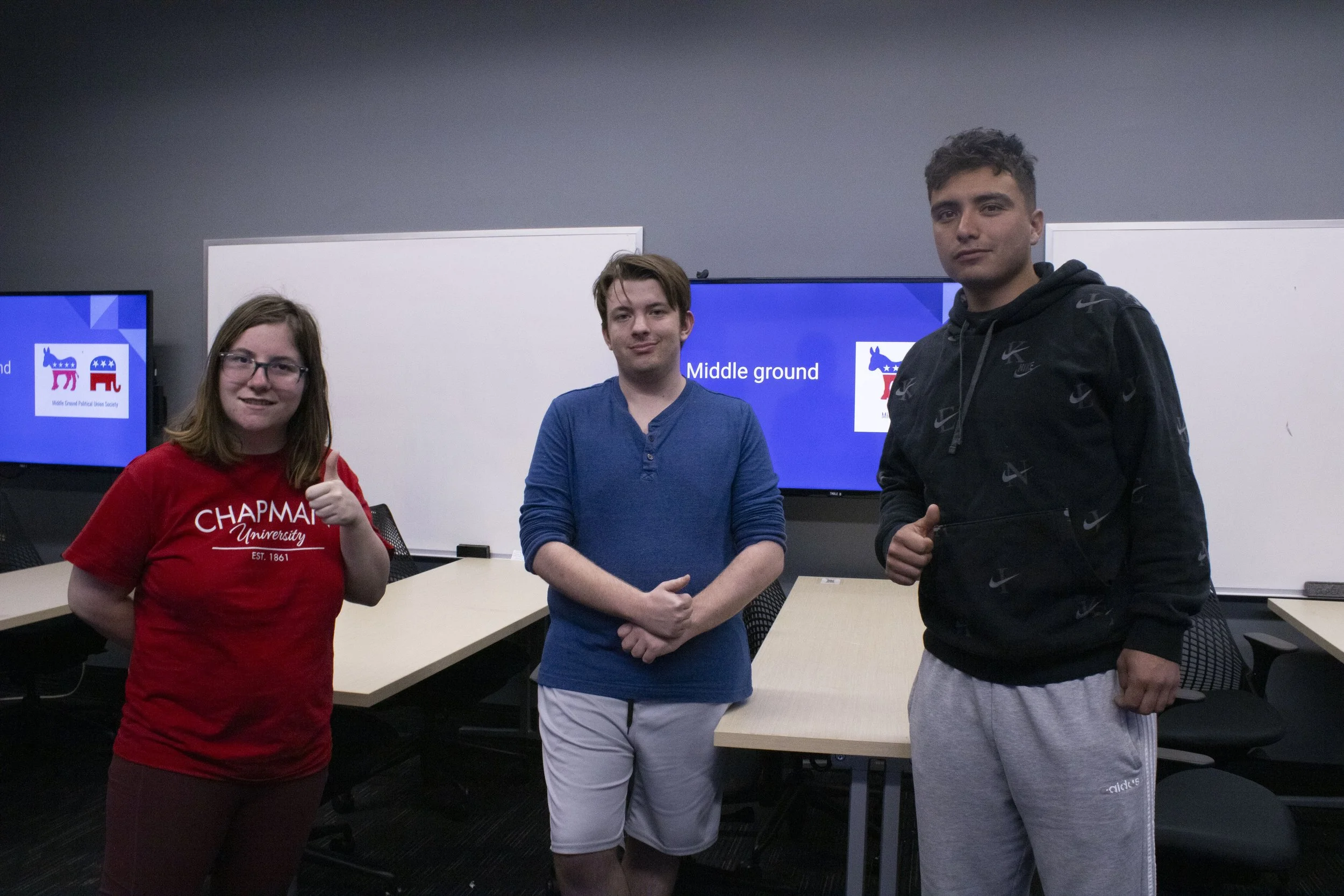Finding middle ground: healing the political divide at Chapman
Photo by Sean Pacheco, Staff Reporter
We are currently living in one of the most politically polarizing eras in the history of the U.S., and as a result of that polarization, it is becoming harder than ever to connect individuals across the aisle in order to come to a common-sense understanding of the world.
But at Chapman, one club is aiming to change that.
Amid rising political tensions, Chapman’s Middle Ground Club aims to bridge the gap between different ideologies and provide a space for students to openly discuss their different views.
Club president Troy Wilcox, a senior electrical engineering major, created the club last fall after witnessing that best discussions that occurred in Chapman Republicans and Chapman Democrats were when opposing views were involved.
“I made it as a way to have a way for many people, different people with different ideology, to come and at least discuss different views,” said Wilcox.
In each club meeting, the attendees focus on one specific issue and share their own thoughts, regardless of party affiliation. Past topics have included the legacy of former President Joe Biden and, recently, support for Ukraine during its ongoing war with Russia. Despite how toxic discussions around politics can get, Wilcox was confident in his club’s ability to ferment cooperation instead of conflict.
“Even with the toxicity, I know people who have different views than me, and we're pretty chill,” said Wilcox. “We have people with different political views. And there wasn't a hindrance.”
For freshman history major and Middle Ground newcomer Evelyn Bunteman, the benefit of the club is not only its ability to break down party barriers, but its ability to break down stereotypes about the political parties themselves.
“I think it's going to help, honestly, because I think if we can all come together and be like, ‘okay, we agree on this, but we don't agree on this necessarily,’ I think it will help break down stereotypes about the party,” said Bunteman. “I find that a lot of people might agree on some things, or that they don't necessarily say otherwise due to party loyalty.”
A unique characteristic of the club is that, because of how open of a forum it provides, the middle ground that it lays out may not directly lie in the center of the political spectrum, but instead shift with the discussion and those who contribute to it.
“I honestly think that depending on who you ask, middle ground is very subjective,” Bunteman said. “Like, to some people, you can't compromise on certain things. And obviously I have certain things I will not compromise on, but other people have other things that they think it can be compromised on. As a whole, I don't think middle ground truly exists.”
The Middle Ground Club isn’t the only Chapman-born push to bring back unity in politics. Political science professor Andrea Molle is working to open a chapter for the Worldwide Civility Council at Chapman for a similar aim. This initiative focuses on fostering respectful discourse and bridging divides in today's polarized environment.
“I want to help create more meaningful discussions and promote civil engagement on campus,” said Molle. “In theory, the middle ground should be equidistant, however, in practice, what is considered ‘middle’ can shift depending on the political context.”
Molle describes the middle ground as a position that works to incorporate elements from both sides of the political spectrum, aiming for balance and compromise rather than strict ideological adherence.
With rising polarization and echo chambers, Molle believes that critical discussions across political perspectives are more necessary than ever, noting the importance of active listening and critical thinking.
“Without such discussions, political discourse becomes stagnant, and divisions deepen, making it harder to address complex societal challenges,” said Molle.

